Hope can be a pitfall
Just do it, go for it all
∞ Rob McBride ∞
SS VII xi 8


Lighthouse of ✌️ 🙏 ❤️ / Faro de ✌️ 🙏 ❤️
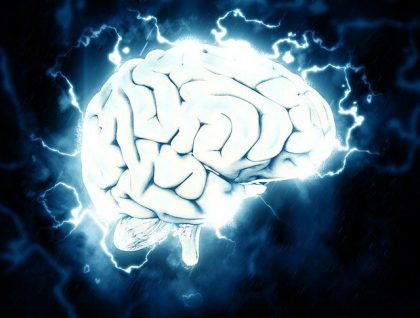 Recently I read something I found intriguing about the difference between making a decision with the brain or the mind. While it may not be 100% true from a biological standpoint, it provides an interesting example to improve our ability to make a decision.
Recently I read something I found intriguing about the difference between making a decision with the brain or the mind. While it may not be 100% true from a biological standpoint, it provides an interesting example to improve our ability to make a decision.
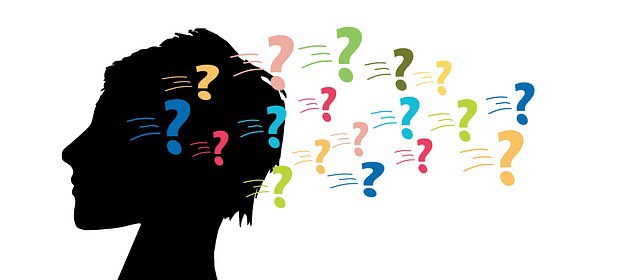 We are all born with a brain capable of doing an infinite number of things and from the time we are young, it helps us survive. For example, the brain tells us that when we are hungry, we should eat; and when there is danger, that we should fight or flee. In this same way, it accompanies us on our journey through life constantly analyzing every situation and giving us “suggestions,” which we may or may not follow. We don’t necessarily have to eat when we are hungry, nor do we have to fight or flee when there is danger, but nevertheless our brain continually gives us options.
We are all born with a brain capable of doing an infinite number of things and from the time we are young, it helps us survive. For example, the brain tells us that when we are hungry, we should eat; and when there is danger, that we should fight or flee. In this same way, it accompanies us on our journey through life constantly analyzing every situation and giving us “suggestions,” which we may or may not follow. We don’t necessarily have to eat when we are hungry, nor do we have to fight or flee when there is danger, but nevertheless our brain continually gives us options.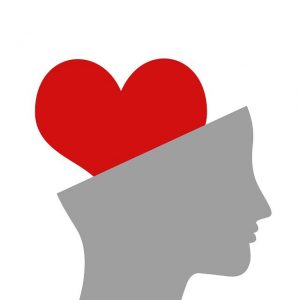
The mind, according to what I read, works differently. It is influenced by what we have learned. Our experience gives “suggestions” coming as a result of those who are in our environment; such as our parents, relatives, neighbors, and teachers. At the same time, the information they give comes from their own minds that have been formed by their experience. While in the majority of the cases this information is given for our benefit, it is not always the best to make a good decision.
 For example, our parents may tell us, “Don’t let anyone intimidate you!” The message is clear, if you encounter a bully in school or on the the street, don’t run, instead stay and fight for your rights. The reality is that there will be times when it is better to run rather than to stay and fight, particularly if the person intimidating us is much bigger and also has a weapon. While the mind analyzes what our parents have told us, the brain’s suggestion is quick and without hesitation. It tells us, “Run away as quickly as possible!” In this instant of doubt, before making the decision, it may be too late.
For example, our parents may tell us, “Don’t let anyone intimidate you!” The message is clear, if you encounter a bully in school or on the the street, don’t run, instead stay and fight for your rights. The reality is that there will be times when it is better to run rather than to stay and fight, particularly if the person intimidating us is much bigger and also has a weapon. While the mind analyzes what our parents have told us, the brain’s suggestion is quick and without hesitation. It tells us, “Run away as quickly as possible!” In this instant of doubt, before making the decision, it may be too late.
While there are times when the mind can help us to make a better decision, there are other times when instead of helping, it gets in the way. Let’s look at another example. We may be in a toxic relationship, which may even be violent. The brain says, “Get away, now!” In the meantime, the mind tells us, “No one is perfect,” and “we should forgive those who have wronged us.” Besides, in many cases we love the person who is doing the damage. Instead of making a decision to go in search for another healthier relationship, we stay in the toxic one.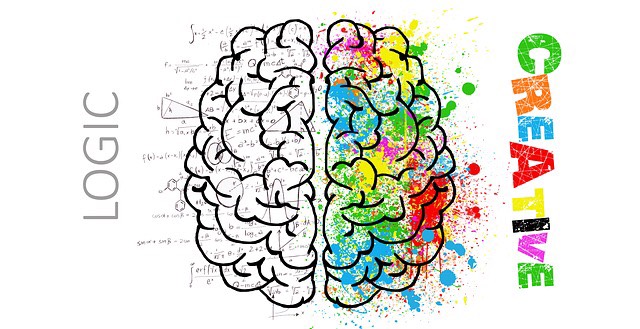
While there are almost always exceptions to any rule, and a life without emotion must be like eating food with no spice; it is important to pay attention to both what our brain and our mind say. The brain analyzes each situation as it is, while the mind integrates experience and emotion.
When the time comes to make an important decision, we can make our decision using both rather than only one or the other. We can first analyze it with our mind, allowing prejudices and the experience of others to come into play.  At the same time, to make a good decision, we should also analyze the situation as if we were a processor in a computer, with the brain taking each of the elements for what it is, without letting experience and emotion unduly sway our point of view. Let’s give weight to both experience and emotion, as well as careful analysis, considering each, and thus improving our ability to optimize our results.
At the same time, to make a good decision, we should also analyze the situation as if we were a processor in a computer, with the brain taking each of the elements for what it is, without letting experience and emotion unduly sway our point of view. Let’s give weight to both experience and emotion, as well as careful analysis, considering each, and thus improving our ability to optimize our results.
∞ Rob McBride ∞
LL IV 28
 Recientemente leí algo que me pareció intrigante sobre la diferencia entre tomar una decisión con el cerebro o con la mente. Aunque tal vez no sea 100% cierto desde el punto de vista biológico, es interesante analizar el ejemplo para mejorar nuestra capacidad de toma de decisiones.
Recientemente leí algo que me pareció intrigante sobre la diferencia entre tomar una decisión con el cerebro o con la mente. Aunque tal vez no sea 100% cierto desde el punto de vista biológico, es interesante analizar el ejemplo para mejorar nuestra capacidad de toma de decisiones.
 Todos nacemos con un cerebro capaz de realizar un sinfín de tareas y desde que somos pequeños, se encarga de ayudarnos a sobrevivir. Por ejemplo, el cerebro nos indica que debemos comer cuando tenemos hambre, y cuando hay peligro debemos pelear o en su defecto huir. De esta manera nos acompaña en toda nuestra vida constantemente analizando cualquier situación y dándonos “sugerencias” que podemos seguir o no. No siempre comemos cuando tenemos hambre, ni tampoco huimos o peleamos ante todos los peligros, pero al menos el cerebro nos da estas opciones continuamente.
Todos nacemos con un cerebro capaz de realizar un sinfín de tareas y desde que somos pequeños, se encarga de ayudarnos a sobrevivir. Por ejemplo, el cerebro nos indica que debemos comer cuando tenemos hambre, y cuando hay peligro debemos pelear o en su defecto huir. De esta manera nos acompaña en toda nuestra vida constantemente analizando cualquier situación y dándonos “sugerencias” que podemos seguir o no. No siempre comemos cuando tenemos hambre, ni tampoco huimos o peleamos ante todos los peligros, pero al menos el cerebro nos da estas opciones continuamente.
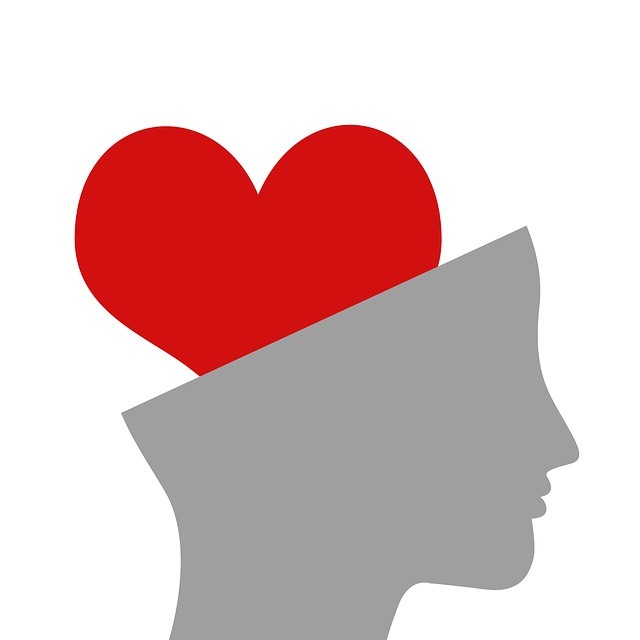 La mente, según dice lo que leía, trabaja de una manera distinta. Ella es influida por lo que hemos aprendido de nuestro mundo y sus “sugerencias” vienen como resultado de los que están a nuestro alrededor; por ejemplo nuestros padres, familiares, vecinos y profesores. Del mismo modo, cada uno de ellos y la información que nos comparten también han sido influenciados por su entorno. Aunque podemos reconocer que dicha información ha sido compartida para nuestro beneficio, no siempre es la más adecuada para tomar una buena decisión.
La mente, según dice lo que leía, trabaja de una manera distinta. Ella es influida por lo que hemos aprendido de nuestro mundo y sus “sugerencias” vienen como resultado de los que están a nuestro alrededor; por ejemplo nuestros padres, familiares, vecinos y profesores. Del mismo modo, cada uno de ellos y la información que nos comparten también han sido influenciados por su entorno. Aunque podemos reconocer que dicha información ha sido compartida para nuestro beneficio, no siempre es la más adecuada para tomar una buena decisión.
Por ejemplo, es posible que de nuestros padres oigamos lo siguiente: “¡No dejes que nadie te intimide!” El mensaje es claro, si encuentras un “bully” en la escuela o la calle, no huyas, sino quédate luchando por tus derechos. Sin embargo, la realidad puede ser otra y habrá momentos cuando es más recomendable huir que quedarnos y luchar, en particular si la persona que nos está intimidando es mucho más grande que nosotros y además tiene algo con lo cual puede hacernos daño. Mientras que la mente considera lo que nos dicen nuestros padres de no huir, la sugerencia del cerebro es rápida, contundente y sin titubeo. Nos dice, “¡Corre lo más rápido posible!” Si dudamos en un instante como este, puede que cuando tomemos la decisión de huir, ya sea peligrosamente muy tarde.
 Si bien hay algunos casos cuando la mente nos puede ayudar a tomar una mejor decisión, en otras oportunidades en vez de ayudar, estorba. Veamos otro ejemplo. Puede ocurrir que estemos en una relación tóxica e inclusive violenta. El cerebro nos dice, “¡Huye lo más rápido posible, sal de ahí!” Mientras tanto la mente nos indica que “no todos somos perfectos” y que debemos “perdonar a aquellos que nos han perjudicado”, además en muchos casos amamos a esa persona que nos hace daño. En vez de tomar la decisión de salir en busca de otra relación más sana, nos quedamos en una relación tóxica.
Si bien hay algunos casos cuando la mente nos puede ayudar a tomar una mejor decisión, en otras oportunidades en vez de ayudar, estorba. Veamos otro ejemplo. Puede ocurrir que estemos en una relación tóxica e inclusive violenta. El cerebro nos dice, “¡Huye lo más rápido posible, sal de ahí!” Mientras tanto la mente nos indica que “no todos somos perfectos” y que debemos “perdonar a aquellos que nos han perjudicado”, además en muchos casos amamos a esa persona que nos hace daño. En vez de tomar la decisión de salir en busca de otra relación más sana, nos quedamos en una relación tóxica.
 Mientras que casi siempre hay excepciones a toda regla, una vida carente de emoción que nos da la mente sería desabrida como comida sin sal. Es importante prestar atención a lo que nos dice nuestro cerebro, quien por definición analiza cada situación en frío. Es también importante escuchar a la mente que lo hace desde la perspectiva de la experiencia y la emoción.
Mientras que casi siempre hay excepciones a toda regla, una vida carente de emoción que nos da la mente sería desabrida como comida sin sal. Es importante prestar atención a lo que nos dice nuestro cerebro, quien por definición analiza cada situación en frío. Es también importante escuchar a la mente que lo hace desde la perspectiva de la experiencia y la emoción.
Llegado el momento de tomar una decisión importante, podemos filtrar todas las opciones a través de ambos. Primero podemos analizarla con la mente, dejando que los prejuicios y la información recibida de otros sea considerada.  De la misma manera, para tomar una buena decisión es necesario también analizar la decisión desde una posición más fría, tal como si fuéramos el CPU de un ordenador. Demos peso tanto nuestra experiencia y la parte emocional como también la analítica, sopesando cada elemento. Así podemos tener una decisión equilibrada, lo que elevará la posibilidad de lograr un óptimo resultado.
De la misma manera, para tomar una buena decisión es necesario también analizar la decisión desde una posición más fría, tal como si fuéramos el CPU de un ordenador. Demos peso tanto nuestra experiencia y la parte emocional como también la analítica, sopesando cada elemento. Así podemos tener una decisión equilibrada, lo que elevará la posibilidad de lograr un óptimo resultado.
∞ Rob McBride ∞
LL IV 28